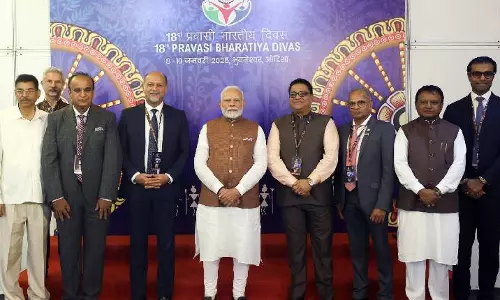
Study reveals lifelong singles have lower life satisfaction
text_fieldsNew Delhi: Lifelong singles may report lower life satisfaction and exhibit distinct personality traits compared to those who have been in relationships, according to a recent study conducted by researchers at the University of Bremen, Germany.
The study, which surveyed over 77,000 individuals aged 50 and above across 27 European countries, is the first to examine personality and life satisfaction among people who have remained single throughout their lives.
The researchers found that individuals who had never been in a serious long-term relationship scored lower on extraversion, conscientiousness, openness to new experiences, and life satisfaction compared to those who were currently single but had been married or partnered in the past. Overall, singles scored lower on these measures than individuals in relationships.
The study concluded that lifelong singles were generally less extraverted, less conscientious, less open to experiences, and less satisfied with their lives. These findings were detailed in the journal Psychological Science.
Julia Stern, the lead author and senior researcher at the University of Bremen explained that older singles, particularly those without partners, face greater challenges due to health and financial issues. Stern emphasized the role of partners in providing critical support and noted the importance of creating better support networks for single individuals.
The researchers pointed out that societal expectations surrounding marriage could worsen dissatisfaction among lifelong singles. This trend was especially apparent in countries with higher marriage rates, such as those in southern Europe. The study found that single women tended to report higher life satisfaction than single men and older individuals appeared more content with singlehood compared to middle-aged people.
The team also investigated whether personality differences were due to inherent traits or shaped by long-term relationships. Stern suggested that the evidence leaned towards the idea of "selection effects," where people with certain personality types, like extraversion, were more likely to enter relationships.
The findings highlighted the need for programs to prevent loneliness among older singles, tailored to their unique personality traits and social needs. Stern suggested developing initiatives to help singles connect with like-minded individuals and foster meaningful relationships. Building networks of care and support could significantly improve their quality of life, she added.
This research sheds light on the challenges faced by lifelong singles and underscores the importance of proactive measures to address their needs and enhance their overall well-being.
With PTI inputs





















